#Free Trade
Explore tagged Tumblr posts
Text

Get ready for the great depression number 2!
https://www.nytimes.com/2024/11/06/us/politics/trump-us-global-leadership.html
#great depression#great depression 2#trump#trumps america#maga#america has failed us#politics#american politics#2024 presidential election#free trade#free trade no longer#us politics#donald trump
99 notes
·
View notes
Text
Tom Nicholas just posted a video that summarizes like half a semester of business school and honestly teaches it better than a lot of my professors, while also ensuring the viewer is aware of the moral and ethical failings of free trade in the name of comparative advantage and global efficiency.
youtube
(Yes, for the unaware: I have a bachelor's degree in international business. I am also one of those people who graduated with a distinct distaste for much of the business world, related directly to the 'taking advantage of cheap labor and bullying less powerful entities is good, actually' model of economic theory that a lot of my classes pushed.)
#tom nicholas#education#economics#global economics#geopolitics#china#wto#united states#phoenix politics#youtube#videos#though I actually watched this on Nebula lol#comparative advantage#free trade#Youtube
370 notes
·
View notes
Text
Free trade as a general abstract principle was bound to have complex global environmental consequences in the long run. Ricardo's famous doctrine of comparative advantage leaves no room for any consideration of the possible harmful ecological effects of increasing international specialization (for example, through monoculture, or other gross simplifications in farming systems).
Colin A. M. Duncan, The Centrality of Agriculture: Between Humankind and the Rest of Nature
23 notes
·
View notes
Text

Just took this test and wanted to share it, feel free to ask me questions and DM me. I can share more if anyone want to see it.
#political things#political#elections#politics#uspol#voting#american politics#culture#leftism#the left#progressive#us politics#eat the rich#tax the rich#communism#corporate greed#revolutionary women#Revolutionary Socialism#anticapitalist#anti capitalism#anti work#antiwork#antifascist#antispeciesism#accelerationists#Cultural left#anti theist#free trade#economy#planned economy
17 notes
·
View notes
Text
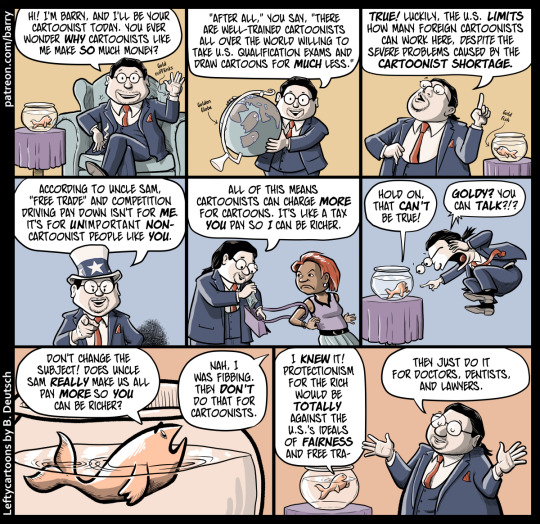
Free Trade Is For Peasants, Not Cartoonists
Transcript, discussion, and a gross anecdote about Hugh Hefner at: https://www.patreon.com/posts/free-trade-is-98677035
We can keep making these cartoons because lots of people support us with $1-3 pledges! Join them at patreon.com/barry
#policartoon#political cartoon#political comics#political cartoons#free trade#protectionism#economics
44 notes
·
View notes
Note
Good evening, sir. May I ask you to explain why capitalism is a force for good? This is a genuine question. Thank you, have a good day.
^_^
Trade means different resources can be combined to achieve results greater than the sum of their parts. It also means shortages in one place can be alleviated by trading with other places. It also means people can specialize and gain the ability to provide services that no one could provide if they had to do everything for themselves. Money means you can do trade between many many more people without having to do billions of barter negotiations deciding on the value of every good and service in an ad-hoc way. Capitalism, ie financialization and debt and large-scale transactions and corporations, allow all of this to be multiplied across civilization and to take place on national and international scales. You have not just the town blacksmith making metal tools for a few hundred villagers, you have factories making machine tools which allow other factories to make cars or farm tools which allow a relatively tiny amount of labor to feed billions of people. Capitalism's ability to produce greater returns on labor and capital also enable science and engineering research which increases health and wealth for everyone
14 notes
·
View notes
Text
Hi, I'm native American and instead of spirit animals, I propose we buy Otomi hand embroidered masks to see which animal represents us. They're $17 and the money goes towards the Otomi tribe and supports the women who make these beautiful pieces of wearable art. It's free trade, despite it being so cheap, and each design is original and unique. The animal you get is random, I got a Turkey, which I loved so much, but I lost it in San Francisco, so I just got a new one...

It's a deer... are you kidding me? I'm in love 💗
#they also make great gifts#native american#otomi#free trade#art#otomi art#mexico#usa#california#2024#wisconsin election#2024 election#lesbian#gay#lgbt#america#trans#dancesingay#espie#professor espie#indigenous#eso#native#mexican#mixed race#pride#desert#tpuch grass#covid#face masks
9 notes
·
View notes
Text
“Russia’s invasion of Ukraine and Donald Trump’s election as US president had “fundamentally changed the context” of EU-UK relations, the report by the European Council on Foreign Relations (ECFR) thinktank said.
“There is a remarkable consensus on both sides of the Channel that the time is ripe for a reassessment of EU-UK relations,” it concluded, with closer relations being the most popular option in every country surveyed – and public opinion on the question well ahead of government stances.”
8 notes
·
View notes
Text

3 notes
·
View notes
Text
Trump Levels The Playing Field With Tariffs
#president trump#donald trump#tariffs#canada#mexico#colombia#free trade#illegal immigration#illegal aliens#guantanamo bay
6 notes
·
View notes
Text







#founding fathers#founding fathers of the united states#rare letter#signatures#john adams#benjamin franklin#thomas jefferson#bonhams#Envoy Extraordinary of the King of the Two Sicilies#declaration of independence#free trade#auction#foreign policy#alexander hamilton#treaties#1700s#18th century
5 notes
·
View notes
Text
"The corporate ruling class’s approach to “free market reform” is a sort of mirror-image of “lemon socialism.” Under lemon socialism, the political capitalists (acting through the state) choose to nationalize those industries that corporate capital will most benefit from having taken off its hands, and to socialize those functions the cost of which capital would most prefer the state to bear. They shift functions from the private to the state sector when they are perceived as necessary for the functioning of the system, but not sufficiently profitable to justify the bother of running them under “private sector” auspices.
Under “lemon market reform,” on the other hand, the political capitalists liquidate interventionist policies after they have squeezed all the benefit out of state action. A good example: British industrialists felt it was safe to adopt “free trade” in the mid-nineteenth century,after mercantilism had served its purpose. Half the world had been hammered into a unified market by British force of arms and was held together by a British merchant fleet. Britain had stamped out competing industry in the colonial world. It had reenacted the Enclosures on a global scale, stealing enormous amounts of land from native populations and converting it to cash crops for the imperial market. The commanding position of British capital was the direct result of past mercantilism; having established this commanding position, it could afford “free trade.”
The so-called “free trade” movement in the contemporary United States follows the same pattern. A century ago, high tariff barriers served the interests of American capital. Today, when the dominant corporate interests are transnational, tariffs are no longer useful to them. They actually impede the transfer of goods and partially finished products between the national subdivisions of a single global corporation, or the importation of goods produced offshore by nominally independent sweatshops producing on contract for American corporations.
On the other hand, so-called “intellectual property” today serves exactly the same protectionist function for transnational corporations that tariffs used to serve for the old national corporations a century ago. Patents and trademarks enable corporations that no longer actually produce anything to outsource all actual production to factories in other countries, but to maintain a legal monopoly on the right to dispose of the product.
Patents and trademarks servethe same basic function of enabling a corporation to monopolize the right to sell a given product in a given market area -- the only difference is that the protective barriers operate along corporate boundaries instead of national boundaries. So the political capitalists promote a version of “free trade” that involves doing away with outmoded tariff barriers while promoting “Free Trade Agreements” whose main purpose is expanding the new protectionism of “intellectual property” law."
-Kevin Carson, "Formal vs. Substantive Statism: A Matter of Context" (2019)
7 notes
·
View notes
Text

On Monday, July 24th, Israel's Foreign Minister met with the Vietnamese Deputy Prime Minister in Jerusalem to commemorate 30 years of bilateral relations and finalize preparations for a free trade agreement between the two nations.
We are looking forward to seeing the ties between Israel and Vietnam deepen and expand!
StandWithUs
9 notes
·
View notes
Link
Consider how “rational optimist” Steven Pinker paints the history of trade in his billionaire-beloved good-news-bearing bible, The Better Angels of Our Nature (its “the most inspiring book I’ve ever read” gushed Bill Gates, the prominent predatory philanthropist). In it Pinker preaches thinking “like an economist” using “the theory of gentle commerce from classical liberalism,” under which trade becomes “more appealing than … war.” Rationally-enlightened leaders reasoned that your “trading partner suddenly becomes more valuable to you alive than dead.”
Compare that glorified life-affirming tradeoff to the views of a frontline practitioner of that so-called gentle commerce: “There can be no trade without war,” declared Jan Pieterzoon Coen of the Dutch East India Company. That’s a quote from Amitav Ghosh’s The Nutmeg’s Curse (an eloquently alarming book about gigantic ideological gaps in climate crisis discourse). Unlike Pinker’s, Coen’s words weren’t abstract theorizing, and he concretely came to the opposite conclusion on the value of trading “partner” lives. He ordered a monopoly-securing massacre of the Banda Islanders. This involved 50 vessels, and 2,000 men (including 80 Japanese ronin, masterless samurai mercenaries) who displaced, “killed, captured, or enslaved” 90% of the 15,000 indigenous “trading partners.” This “almost total annihilation of the population of the Banda Islands [was] clearly a genocidal act” (concluded a 2012 paper in the Journal of Genocide Studies). The cursed spice of Ghosh’s title was so valuable that a handful of nutmegs “could buy a house or ship.” which sadly meant Coen’s gentle-commerce genocide made greedy profits even at the cost of 5,000 slaves per year (“labor” didn’t last long under gentle-commerce conditions).
Pinker isn’t wrong in reporting Enlightenment views. Economist Albert Hirschman, in The Passions and the Interests, an influential book on the long process of alchemizing the once-deadly vice of avarice into plainly-rational “self-interest” during the rise of early capitalism, confirms there was “much talk… about the douceur of commerce.” Douceur translates to “sweetness, softness, calm, and gentleness… the antonym of violence.” Hirschman and Pinker cite a long list of Enlightenment luminaries, for instance, Kant in 1795 wrote that “The spirit of commerce … can not exist side-by-side with war.” Pinker concurs, “commercial powers …tended to favor trade over conquest.”
But this majestic myth-making of modernity—the Enlightenment as a triumph of rationality and humanism—must not be allowed to mask that the Age of Reason ran parallel to and often justified the vast violent plunder of imperial economics (now often euphemistically called “free trade”). One reason this hushed-up history matters is that even today economic “rationality” and plunder often remain partners in crime. For all of Pinker’s elegant-stats-wielding elite-soothing sermons that “in fact a free market puts a premium on empathy,” there was little empathy, empirically evident, for the likes of the Banda Islanders. Or for many millions more lives ended or blighted by “gentle commerce” and “free trade,” which as we’ll see could materialize at your border in the form of a genocidal corporate army bent on “premium-empathy”-ing your way of life into your own blood-soaked dust.
303 notes
·
View notes
Text
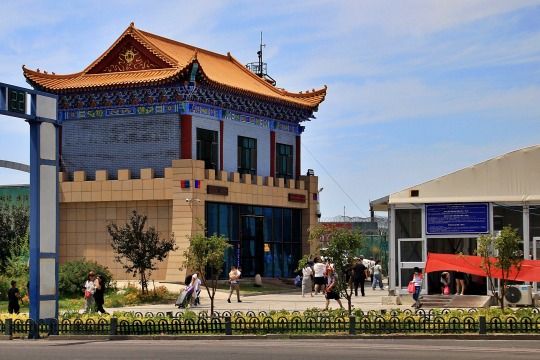
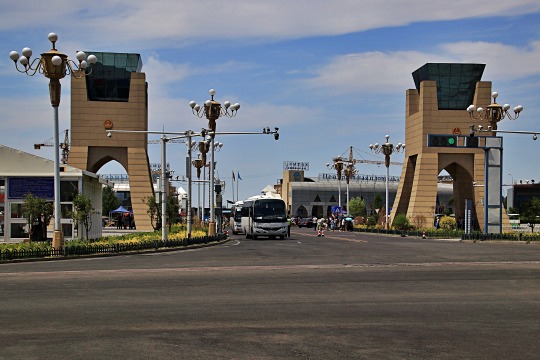
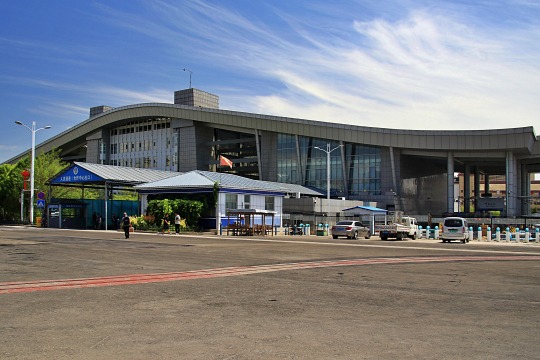


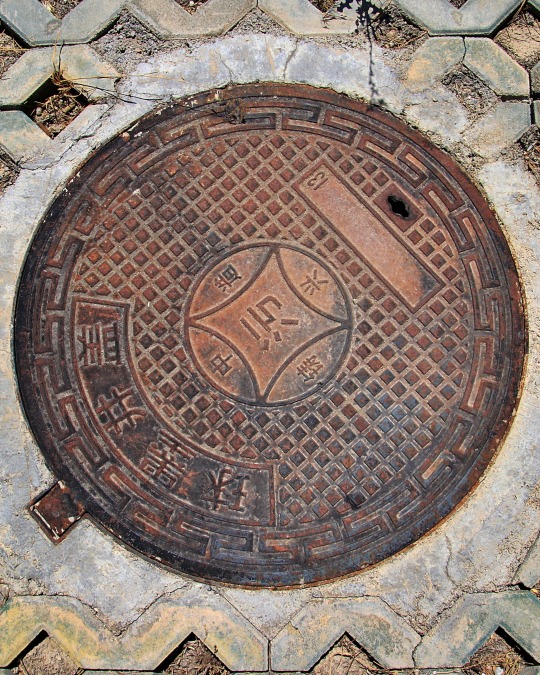
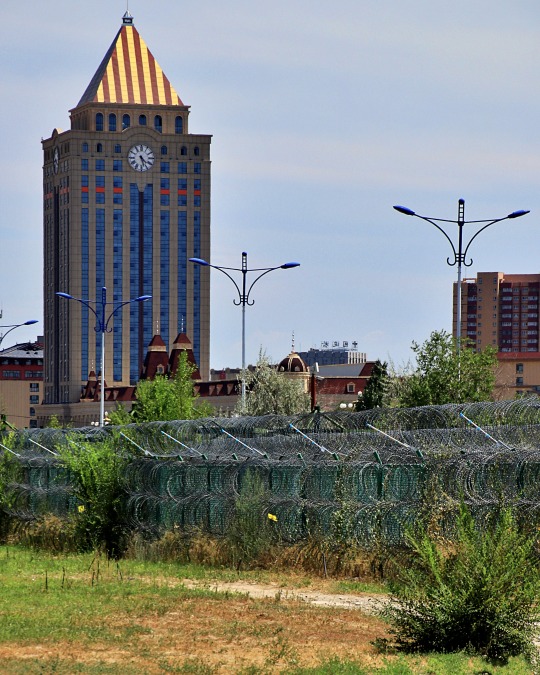

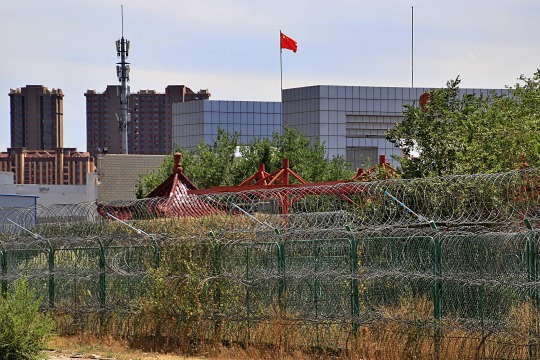
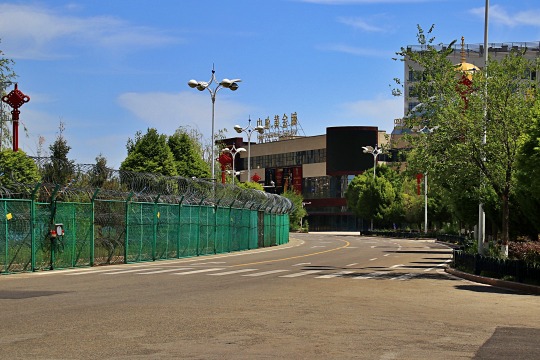
Chinese side of Khorgos Free Trade Zone ( Kazakhstan - China border )
#travelphotography#photooftheday#adventure#aroundtheworld#explore#pickoftheday#trip#architecture#travel#borderline#new silk road#silk road#world#central asia#border crossings#china#freetradezone#khorgos#free trade#kazakhstantravel#visitkazakhstan#kazakhstan
3 notes
·
View notes